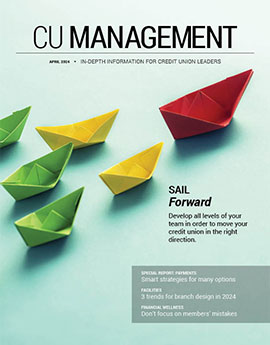3 minutes
Why you want to have ‘utility players’ on your team—and how to best develop them
In many sports, a “utility player” can play several positions competently. In rugby, the term is commonly used by commentators to recognize a player’s versatility.
Great coaches know how to deploy such players effectively. Rather than seeing a utility player as not good enough to be a specialist in one position, they see the strength in having a player that can effectively deliver in different roles as team needs change.
This is a mindset great leaders need to apply in today’s business landscape. With high turnover often leaving key positions open, organizations can benefit from leaders being more creative about which team members can effectively apply their skills in another role. Doing so creates a lot of opportunity for career growth for these generalists—and for employers to appropriately develop them.
Let’s look at why you might want to have utility players—generalists—on your team and how best to prepare them to deliver on their versatility.
Valuing Generalists
According to an article from HBR, many studies have found that winning business ideas come from connecting insights from disparate fields, something generalists do well.
“For example,” the article’s authors write, “Charles Babbage’s invention of computational machines powered by punch cards, the foundation of modern computers, was inspired by Babbage’s knowledge of the silk-weaving industry, which used cards with holes to create patterns in the silk fabric. Similarly, Henry Ford’s revolutionary idea of the car manufacturing assembly line was inspired by Singer sewing machines and meatpacking plants.”
In addition, generalists often have great interpersonal skills and are adept at leading teams and coordinating among teams, according to this article from Forbes. “Generalists are the conductors that lead the orchestra,” the author writes. “They have a high capacity to collaborate effectively and facilitate collaborations between teams because of their high EQ (emotional quotient).”
Plus, honoring generalists for who they are will help keep them engaged in their work. The Forbes author—a self-described generalist—also writes, “I’m always invigorated when I test my own limits, acquire a new skill and use it to make something great happen at my company or in my career.”
Generating Great Generalist Talent
In this podcast from the Wharton School at the University of Pennsylvania, David Epstein, an investigative journalist and author of Range: Why Generalists Triumph in a Specialized World, suggests that breadth of training is key to developing generalists so they can excel.
“The more dynamic sports are what Hogarth called more wicked learning environments, where patterns don’t repeat and you have to do things on the fly and at speed, and you have to solve problems you haven’t seen before,” Epstein says in the show. “You have to take skills and knowledge and apply them to situations you haven’t seen before—do what psychologists call ‘transfer.’
“Whether you are a kid learning math or sports or a scientist working on an unusual problem, what you need to do is transfer knowledge because you’re trying to do something you haven’t done before,” he continues. “And the way you set that up is with this much broader-based learning. The more varied your training is, the better able you’ll be to apply your skills flexibly to situations you haven’t seen.”
Epstein emphasizes that valuing generalists doesn’t mean business doesn’t need specialists too. The problems, he says, are telling everyone to specialize and not providing enough breadth in learning for generalists.
What are you doing in 2023 to make the most of your talented generalists and specialists? Consider energizing your people leaders to rise to this challenge by sending them to TalentNEXT in September, plus aiding their work by helping them identify the learning needs of everyone on your team.
Jerry Saalsaa is interim CEO of CUES. Since joining the team in 1997, he has led CUES’ finance, technology, human resources and strategy teams, including serving as VP/finance and technology and, most recently, as SVP/chief administrative officer. Saalsaa’s leadership has built a foundation that has enabled CUES to become a more sales- and market-driven organization. He holds a B.S. in accounting from Upper Iowa University, has earned certificates in negotiation from The Wharton School at the University of Pennsylvania and has attended all three segments of CUES’ CEO Institute.










